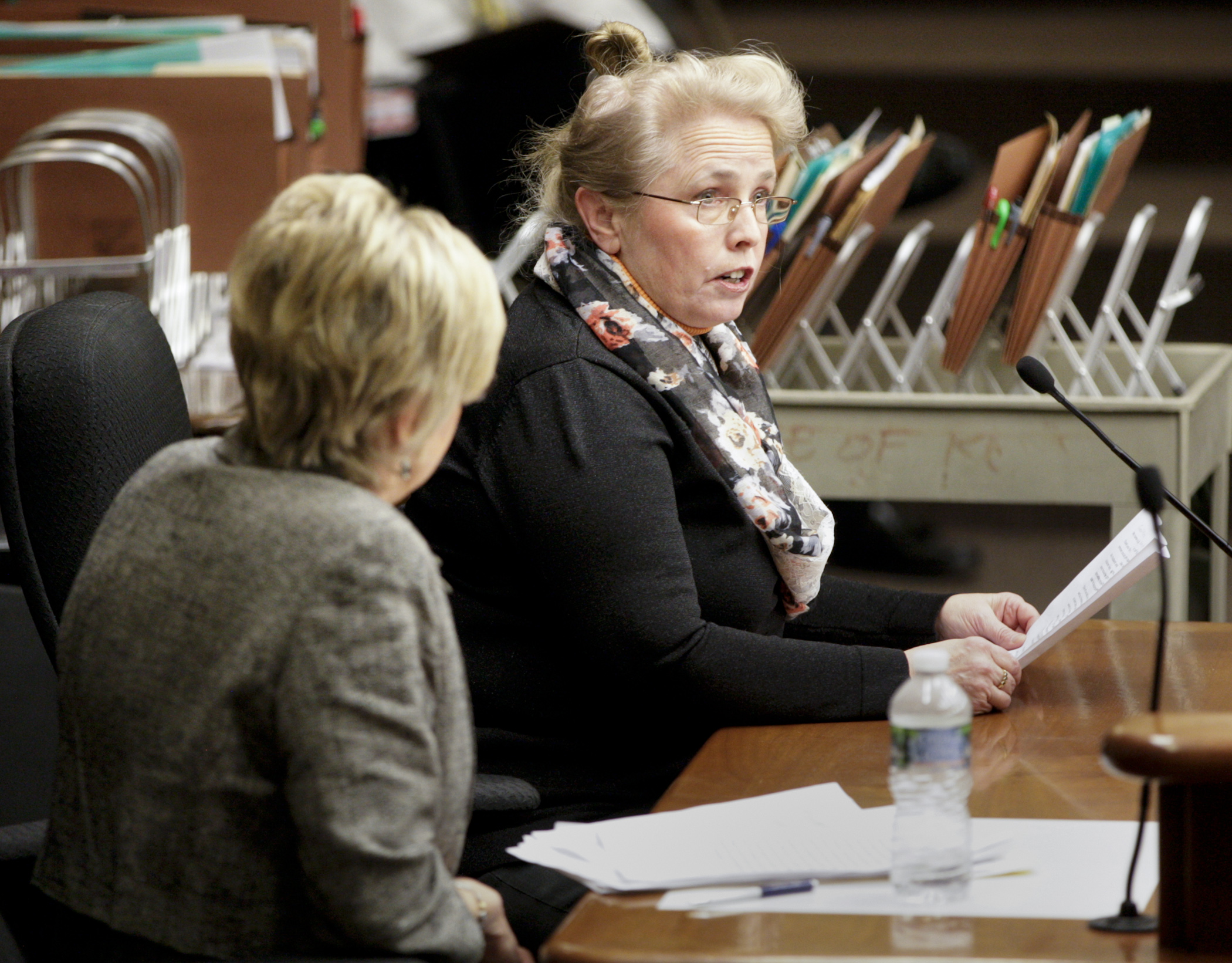Social Security reprieve could give seniors 'an excuse to stay in Minnesota'

Barbara Lenirt and her husband are lifelong Minnesota residents. They started their business here and have lived in the same house for 30 years.
As they approach retirement, she is looking for “an excuse to stay in Minnesota during the autumn years of our life.” But for tax purposes, they are thinking of leaving the state. She calculates that over her retirement years, the couple will pay approximately $50,000 in taxes on their Social Security income.
She was before the House Taxes Committee Tuesday during a hearing on several bills that would phase out or exempt Social Security income from Minnesota’s individual income tax. All were held over for possible omnibus bill inclusion.
With a possible $1.87 billion surplus over the biennium, the Social Security phase-out is competing with millions of dollars in other tax credit and reduction proposals that are before the committee.
“This is something that is hugely important to the senior citizens,” said Rep. Dale Lueck (R-Aitkin), who sponsors HF304. His bill would allow a subtraction from Minnesota taxable income and the state’s alternative minimum taxable income the portion of Social Security income included in federal taxable income.
“In a climate where we’ve found the ability to raise taxes in a number of ways, and when you are sitting on a fixed income, you’ve got nowhere else to go. This would put money back in our senior citizen’s pockets,” he said.
Depending upon the phase-out dates, the bills vary on their potential cost and impact to the General Fund. For instance Lueck’s bill calls for the subtraction to be phased in with 20 percent of taxable Social Security income in tax year 2016 and then increases the percentage to be subtracted by 20 percent each year until all benefits would be subtracted in 2020. The cost in Fiscal Year 2017 is projected to be $81 million and as high as $287.5 million in Fiscal Year 2019.
A similar bill, HF309, sponsored by Committee Chair Rep. Greg Davids (R-Preston), would phase-out the tax on Social Security income by 10 percent beginning with tax year 2015, and the same percentage thereafter. According to a Department of Revenue fiscal note, the impact to the General Fund would be $38.2 million in tax year 2016 and escalate to about $193 million three years later.
Under current law, benefits are exempt from federal and state taxation for filers with provisional income under $25,000 for single filers and $32,000 for married couples filing jointly.
Rep. Diane Loeffler (DFL-Mpls) foresees a situation of pitting seniors against seniors.
“You get to the later years of the phase-in, that’s when they [retirees] start to become dependent upon home care supports, maybe going to assisted living. ... So at the same time we are looking at this major tax break for the wealthier seniors, we, at the same time, have … the lower income seniors turning to the state to have their needs met. It’s going to be really difficult for all of us, no matter which party is in charge, to balance the demands that are going to be put on our service system.”
The respective companion bills are SF254, sponsored by Sen. Carrie Ruud (R-Breezy Point), and SF124, sponsored by Sen. David Senjem (R-Rochester). Both await action by the Senate Taxes Committee.
Related Articles
Search Session Daily
Advanced Search OptionsPriority Dailies
Ways and Means Committee OKs proposed $512 million supplemental budget on party-line vote
By Mike Cook Meeting more needs or fiscal irresponsibility is one way to sum up the differences among the two parties on a supplemental spending package a year after a $72 billion state budg...
Meeting more needs or fiscal irresponsibility is one way to sum up the differences among the two parties on a supplemental spending package a year after a $72 billion state budg...
Minnesota’s projected budget surplus balloons to $3.7 billion, but fiscal pressure still looms
By Rob Hubbard Just as Minnesota has experienced a warmer winter than usual, so has the state’s budget outlook warmed over the past few months.
On Thursday, Minnesota Management and Budget...
Just as Minnesota has experienced a warmer winter than usual, so has the state’s budget outlook warmed over the past few months.
On Thursday, Minnesota Management and Budget...